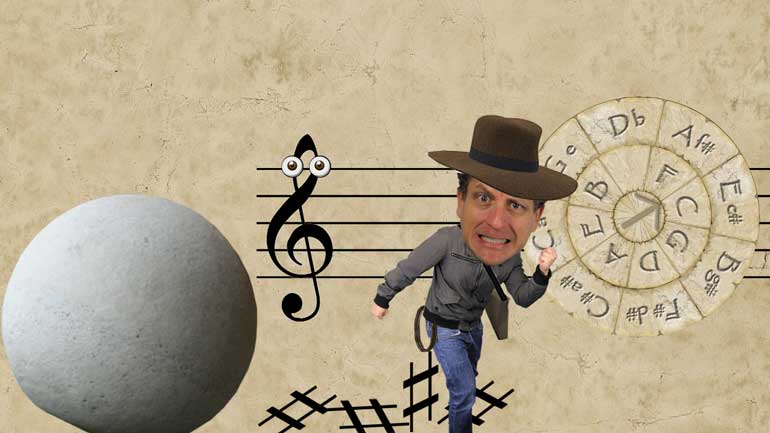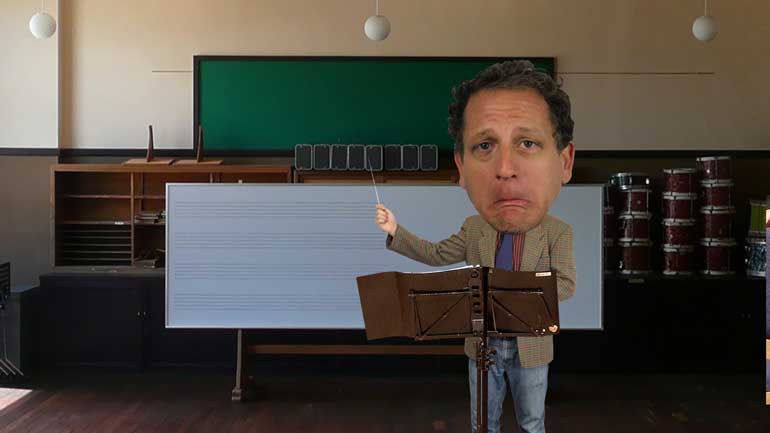ShmoopTube
Where Monty Python meets your 10th grade teacher.
Search Thousands of Shmoop Videos
AP Music Theory 4.1 Score Analysis 78 Views
Share It!
Description:
AP Music Theory 4.1 Score Analysis. Which of the following answers is an example of compound meter?
Transcript
- 00:00
Thank you We sneak in and here's your smoked You
- 00:05
sure brought to you by time signatures were still trying
- 00:08
to get an autograph from cut time He's always rushing
- 00:10
off somewhere Okay Here's our question which of the following
- 00:13
answers is an example of compound meter and hear your
Full Transcript
- 00:17
potential answers brought to you by the metric system with
- 00:21
a different deal All right compound and simple are opposing
- 00:24
terms used for a lot of things including interest fractures
- 00:27
and time signatures Luckily for all parties involved we're looking
- 00:31
at time signatures So if we get this question wrong
- 00:34
we might be looking at fractures Are boss Takes music
- 00:36
education pretty seriously for this problem all we need to
- 00:40
know is what a compound meter is versus a simple
- 00:43
meter Well a simple meter is any time signature in
- 00:46
which the beats air naturally divided into two equal parts
- 00:49
Whereas a compound meter is any time signature where the
- 00:52
beats are naturally divided into threes So yep Looks like
- 00:56
we have to use math You could do it Drummers
- 00:58
stay strong Okay So for example the time signature eight
- 01:01
to khun be divided into two parts That means answer
- 01:05
D's on the wrong team Likewise the time signature for
- 01:08
one is naturally divisible into two equal parts for one
- 01:13
would also be a great name for a boy band
- 01:15
but it's not our answer So bye bye bye answer
- 01:17
B seven four is tricky It appears to be neither
- 01:21
compound nor simple but if we think about each of
- 01:23
the seven beats in the measure being divided into two
- 01:26
eighth notes each we can see that it's in simple
- 01:29
meter to which leaves us with twelve sixteen Well twelve
- 01:33
sixteen is naturally divisible by three no matter how you
- 01:36
slice it Three groups of four four groups of three
- 01:38
ala mode or ice cream on the side our compound
- 01:41
meter is answered a so many fractions We have broken
- 01:45
our math bone Now all we have to do is
- 01:47
figure out if it's a compound or a simple fracture
Up Next
AP Music Theory 3.5 Score Analysis. What kind of chord is shown above?
Related Videos
AP Music Theory 4.2 Score Analysis. What figured bass symbol best describes the above chord?
AP Music Theory 3.2 Score Analysis. What notes would have sharps in the key of c sharp minor?
AP Music Theory 1.1 Music Terminology, Terms & Symbols. Which of the following scales contains the notes shown above?
AP Music Theory 2.1 Music Terminology, Terms & Symbols. What is the key signature shown above?




